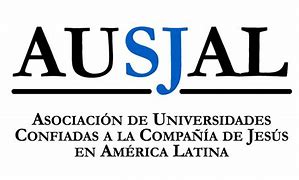Elements of fracture mechanics / Prashant Kumar
Idioma: Editor: New York, N.Y. : McGraw-Hill Education, c2009Descripción: 1 online resource (xvi, 273 pages) : illustrations, figures, tablesTipo de contenido:- texto
- computadora
- recurso en línea
- 9780070656963
- 620.1126
A. Dedication -- B. Preface -- C. Acknowledgements -- D. Author's profile -- 1. Background -- Kinds of failure -- Historical aspects -- Brittle and ductile fracture -- Modes of fracture failure -- How potent is a crack? -- Point of view -- Damage tolerance -- References -- 2. Energy release rate -- Introduction -- Griffith's dilemma -- Surface energy -- Griffith's realization -- Griffith's analysis -- Energy release rate -- Energy release rate of dcb specimen -- Anelastic deformation at crack-tip -- Crack resistance -- Stable and unstable crack growth -- R-curve for brittle cracks -- Thin plate vs thick plate -- Critical energy release rate -- Closure -- Questions -- Problems -- References -- 3. Stress intensity factor -- Introduction -- Stress and displacement fields in isotropic elastic materials -- Stress intensity factor -- Background for mathematical analysis -- Westergaard's approach -- Concluding remarks -- Questions -- Problems -- References -- 4. Sif of more complex cases -- Other applications of westergaard approach -- Application of the principle of superposition -- Crack in a plate of finite dimensions -- Edge cracks -- Embedded cracks -- The relation between gi and ki -- Critical stress intensity factor -- Bending and twisting of cracked plates -- Closure -- Appendix 4a: general approach to determine stress and displacement fields -- Appendix 4b: sif of some important cases -- Questions -- Problems -- References -- 5. Anelastic deformation at the crack tip -- Further investigation at the crack tip -- Approximate shape and size of the plastic zone -- Effective crack length -- Effect of plate thickness -- Closure -- Questions -- Problems -- References -- 6. J-integral -- Relevance and scope -- Definition of the j-integral -- Path independence -- Stress-strain relation -- Further discussion on j-integral -- Engineer approach -- a short cut -- Closure -- Appendix 6a: equivalence of g and j for elastic materials -- Appendix 6b: the j-integral of some common cases through engineering approach -- Questions -- Problems -- References -- 7. Crack tip opening displacement -- Introduction -- Relationship between ctod, ki and gi for small scale yielding -- Equivalence between ctod and j -- Closure -- Questions -- Problems -- References -- 8. Test methods -- Introduction -- Kic-test technique -- Test methods to determine jic -- Test methods to determine gic and giic -- Determination of critical ctod -- Closure -- Appendix 8a: regression analysis to fit a line of known slope -- Questions -- Problems -- References -- 9. Fatigue failure and environment-assisted fracture -- Introduction -- Fatigue failure -- Environment-assisted fracture -- Environment-assisted fatigue failure -- Closure -- Questions -- Problems -- References -- 10. Finite element analysis of cracks in solids -- Finite element method -- Direct methods to determine fracture parameters -- Indirect methods to determine fracture parameters -- References -- 11. Mixed mode crack initiation and growth -- Introduction -- Fracture surface -- Mixed mode crack propagation criteria -- An example of mixed mode -- Crack growth -- References -- 12. Crack detection through non-destructive testing -- Introduction -- Examination through human senses -- Liquid penetration inspection -- Ultrasonic testing -- Radiographic imaging -- Magnetic particle inspection -- Concluding remarks -- References.
No hay comentarios en este titulo.










